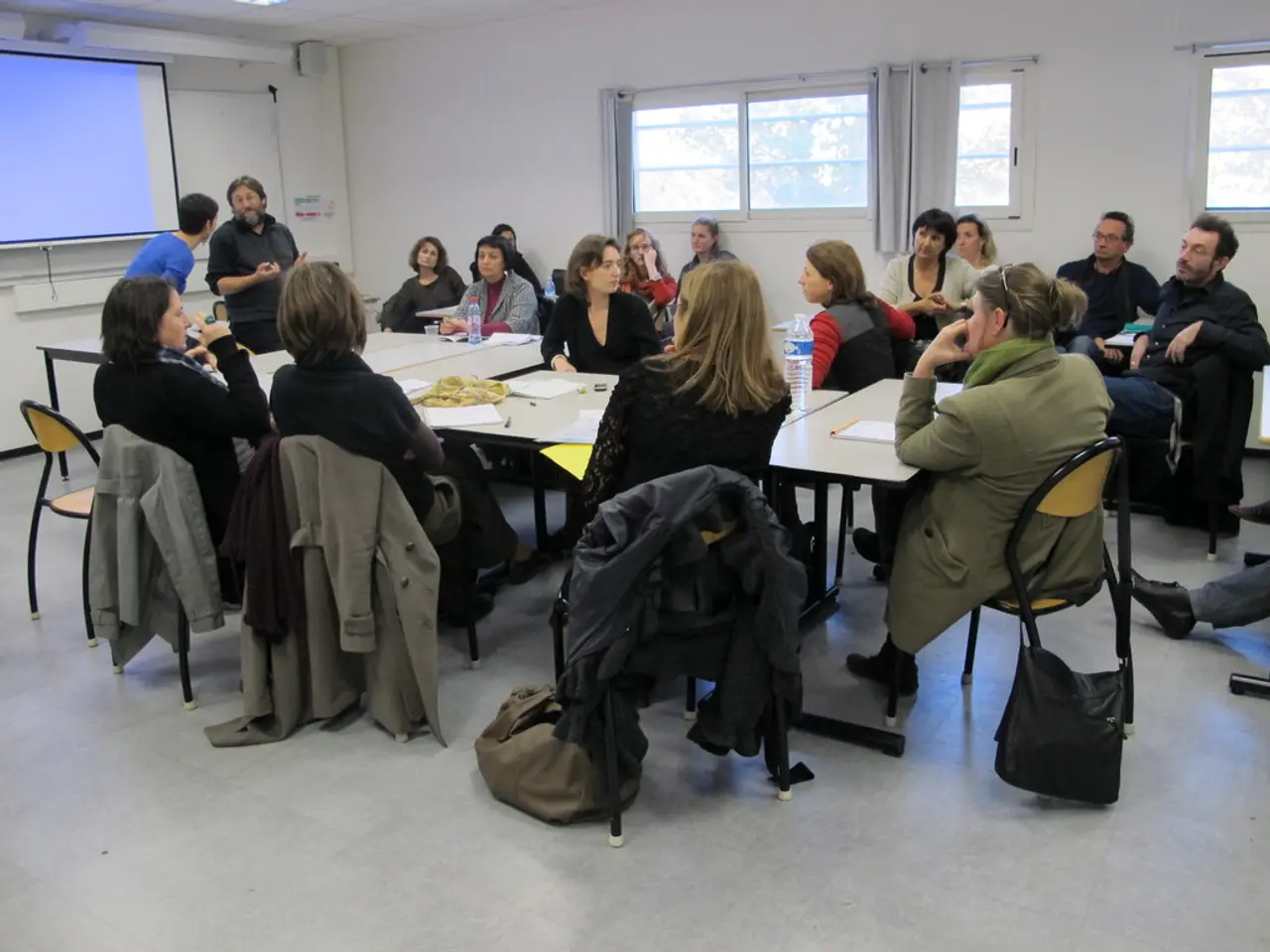Effective Collaboration in Online Groups: Insights and Strategies for Maximizing Productivity
In the digital age, online group work has become a crucial aspect of higher education. By adopting effective strategies, educators can create a structured yet flexible learning environment that fosters both academic and interpersonal growth, leading to more enjoyable and successful group work experiences.
A key element in designing collaborative assignments is setting clear learning objectives that focus on higher-order thinking such as analysis, synthesis, and application. Assign tasks that require genuine collaboration, like case studies or projects that leverage diverse perspectives, to encourage meaningful interdependence among group members.
Structuring roles and expectations is another essential aspect. Assigning structured group roles aligned with instructional goals ensures balanced participation and accountability. Rotating these roles helps each student contribute and develop essential teamwork skills. Clarifying expectations early fosters engagement and prevents free-riding.
Active monitoring and support are also vital. Faculty should monitor groups in real-time, guiding communication, fostering respectful dialogue, checking for understanding, and intervening to resolve conflicts or misconceptions. This active involvement demonstrates that the group work matters and provides opportunities for modeling collaboration skills.
Encouraging reflection and metacognition is another strategy. Incorporate opportunities for students to reflect on their group processes and experiences. This reinforces both academic content and collaboration skills, helping students learn how to work more effectively in groups in the future.
Digital collaboration tools like Google Workspace, Microsoft Teams, or Slack can facilitate communication, file sharing, and real-time collaboration. Research shows such tools improve teamwork, increase creativity, reduce confusion, and build trust among group members. They also support flexibility and accessibility in digital classrooms.
Personalized and timely communication is another crucial factor. Using educational management systems that offer personalized, automated notifications about deadlines, changes, and progress can enhance students’ connectedness to both content and peers, fostering a supportive online environment.
Fostering inclusion and encouragement in groups is also important. Encourage verbal and non-verbal supportive behaviors to keep discussions flowing and inclusive. Actively involve quieter members by inviting their opinions or adjusting roles to suit their strengths. Avoid behaviors that unintentionally sabotage group dynamics.
Building personal connections is another strategy. Starting sessions with brief check-ins or icebreakers in the online environment can build rapport among group members. Personal connection increases motivation and enjoyment in group tasks.
In conclusion, these strategies promote a structured yet flexible group learning environment that addresses both academic and interpersonal dimensions, resulting in more enjoyable and successful online group work experiences in higher education. Platforms and online tools that can support online group work include Google Workspace, Dropbox, Jitsi, Skype, BigBlueButton, Zoom, Microsoft Teams, MindMeister, Padlet, Microsoft To Do, and various premium tools for advanced communication and video conferencing. To ensure successful online group work, define a clear structure, assign responsibilities, hold regular meetings, set realistic deadlines, foster respectful interaction, share helpful resources, and celebrate milestones.
- To encourage effective learning and collaboration, educators could incorporate online platforms like Google Workspace or Microsoft Teams into their assignments, as these tools can help students work together, build trust, and enhance creativity.
- Incorporating strategies such as role assignments, educational management systems for personalized communication, and opportunities for self-reflection, can help foster a structured yet flexible online learning environment conducive to education-and-self-development, and online-education, ultimately leading to better group work experiences.




